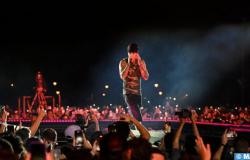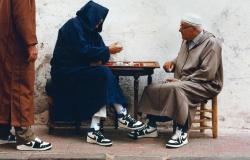General Leclerc left Morocco for England on April 17, 1944. Back in Europe, after four years spent fighting the Axis forces on the African continent, he prepared to fight to liberate France . But if participating in the Liberation alongside the Allies is first and foremost a military affair, it is also, and even more so, a political affair.
For Free France and for De Gaulle, it was about establishing legitimacy and seizing power to restore republican order. In this new episode, you will understand how General Leclerc and his second armored division were the tool of Gaullian ambitions, and how the two resistances, internal and external, ended up coming together in the battles for the liberation of Paris.
At the heart of the Battle of Normandy
At the head of his 15,000 men and around fifty women, members of the Rochambelles group of nurses, Leclerc landed on French soil at Utah Beach on August 1, 1944. His division was integrated under American command and quickly distinguished itself by its combat effectiveness. In mid-August, from north to south, the Germans retreated everywhere, and opened the road to Paris.
On the road to the liberation of Paris: General De Gaulle’s march to power
The capital finds itself at the center of a political battle. General Leclerc’s mission is to facilitate the path to power of the leader of Free France in Paris. At the end of August 1944, in Paris, internal resistance launched a popular insurrection which escaped the control of the Gaullists, and which accelerated the political battle for the seizure of power in France. Leclerc officially entered Paris on August 25, 1944. You will understand how De Gaulle emerged victorious from the liberation of Paris, thanks to this trans-European and transatlantic alliance embodied by Leclerc.
Speakers
Sébastien Albertelli, historian, professor, specialist in the history of the Resistance, Free France and the secret services. Author of “They followed de Gaulle: history of the French Volunteer Corps, 1940-1946” (Perrin, 2020)
Guillaume Pikettyhistorian, specialist in the Resistance and the Second World War, Professor of contemporary history at Sciences Po, and permanent researcher attached to the Sciences Po History Center, author with Jean-François Murraciole of “The encyclopedia of the Second World War” (Robert Laffont, 2015)
Jean-François Muracciolehistorian, specialist in the Resistance, Free France and the Second World War, professor of contemporary history at the Paul-Valéry Montpellier III University, author of “The Liberation of Paris” (Tallandier) and “Quand De Gaulle liberates Paris, June-August 44″ (Odile Jacob)
Team
Story and production: Philippe Collin
Directed by: Violaine Ballet
Readings: Anne Kessler and Laurent Stocker, members of the Comédie-Française
Editorial assistance: Irène Menahem, assisted by Léonie Ferrer
Sound documentation: Frédéric Martin
Mixing: Basile Beaucaire and Cédric Diallo
Sound Design: Basile Beaucaire
References
Archives
- “Courage”, a poem by Paul Eluard said by the author, RDF, 1958
- Call of June 22, 1940 from General de Gaulle after the signing of the armistice, BBC, June 1940
- Suzanne Massu, chef of Rochambelles, France Culture, 1970
- Memories of Philippe Leclerc de Hautecloque on the Liberation of Paris, RDF, August 1946
- Editorial by Maurice Schumann after the capture of Alençon by Leclerc, August 1944
- Memories of Rochambelles, RTF, 1969
- The landing in Provence, Army Cinematographic Service – ECPAD
- Sound chronicle of liberated Paris: call for insurrection, RDF, August 1944
- Madeleine Riffault recounts the battle for the liberation of Paris, France Culture, 1969
- Report by Pierre Crenesse during the battle for the liberation of Paris, August 1944
- Raymond Dronne: the soldiers of the Nueve, ORTF, 1965
- François Collon, first soldier of the 2nd DB to enter Paris, ORTF, 1972
- Henri Rol-Tanguy: the act of surrender of Commander Von Choltitz, France Culture, 1987
- Speech at City Hall by General de Gaulle, August 1944
- Entry of the Leclerc division into Paris on August 26, 1944
- Paul Eluard “Paris has regained its freedom”, RDF, August 1944
- A group of FFI in the courtyard of a ministry in Paris on August 28, 1944
Film clips
- “Is Paris Burning” by René Clément
- “The Fighters” by Camille Treiner and Cécile Lorne
- “The English Patient” by Anthony Minghella
- “De Gaulle, the brilliance and the secret” by François Velle
- “Snow and Fire” by Claude Pinoteau






